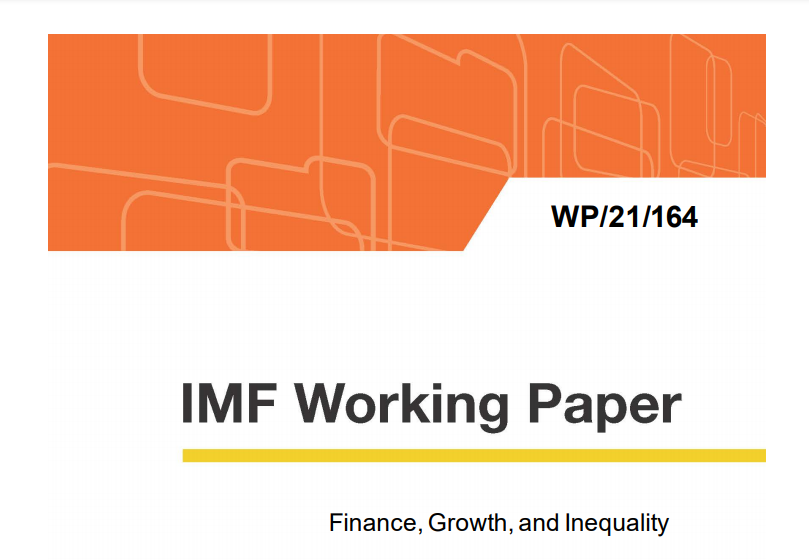By Ross Levine : IMF : 11-06-2020
Finance and growth emerged as a distinct field of economics during the last three decades as economists integrated the fields of finance and economic growth and then explored the ramifications of the functioning of financial systems on economic growth, income distribution, and poverty.
In this paper, I review theoretical and empirical research on the connections between the operation of the financial system and economic growth and inequality. While subject to ample qualifications, the preponderance of evidence suggests that (1) financial development—both the development of banks and stock markets—spurs economic growth and (2) better functioning financial systems foster growth primarily by improving resource allocation and technological change, not by increasing saving rates. Some research also suggests that financial development expands economic opportunities and tightens income distribution, primarily by boosting the incomes of the poor. This work implies that financial development fosters growth by expanding opportunities.
Finally, and more tentatively, financial innovation—improvements in the ability of financial systems to ameliorate information and transaction costs—may be necessary for sustaining growth.


Recent Comments